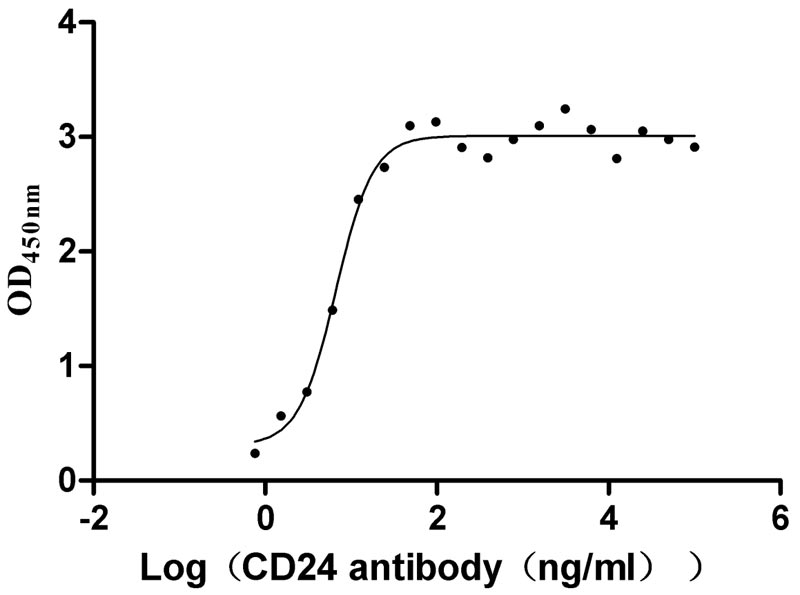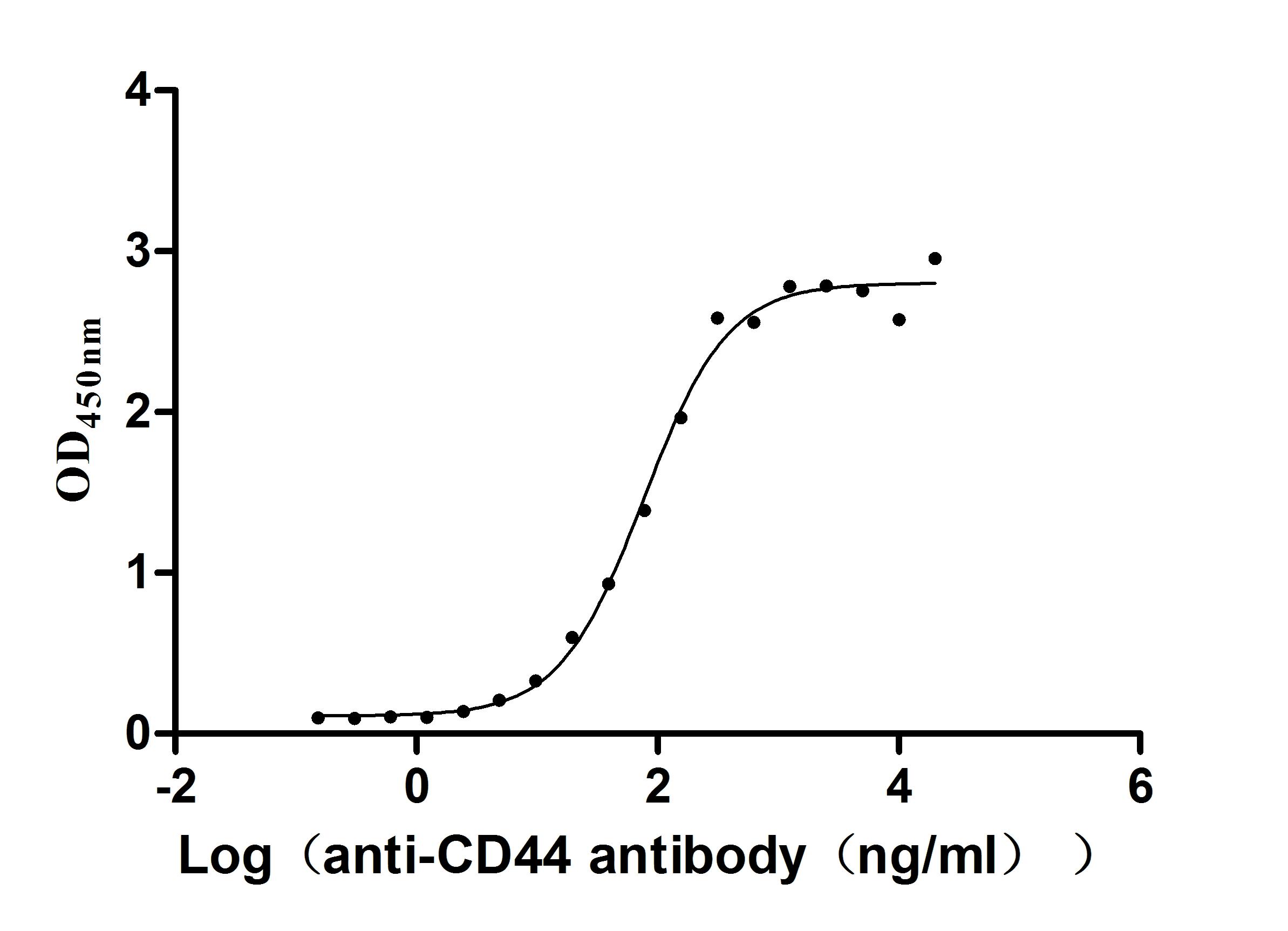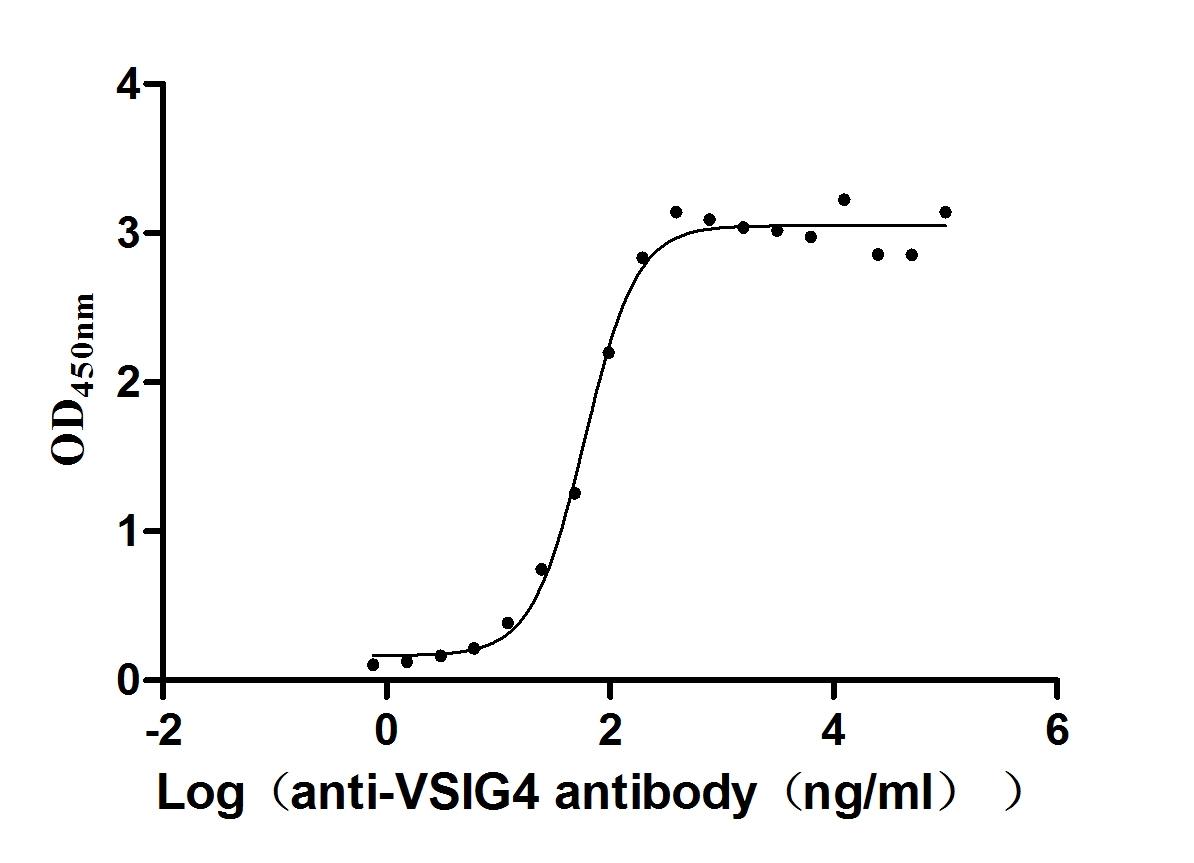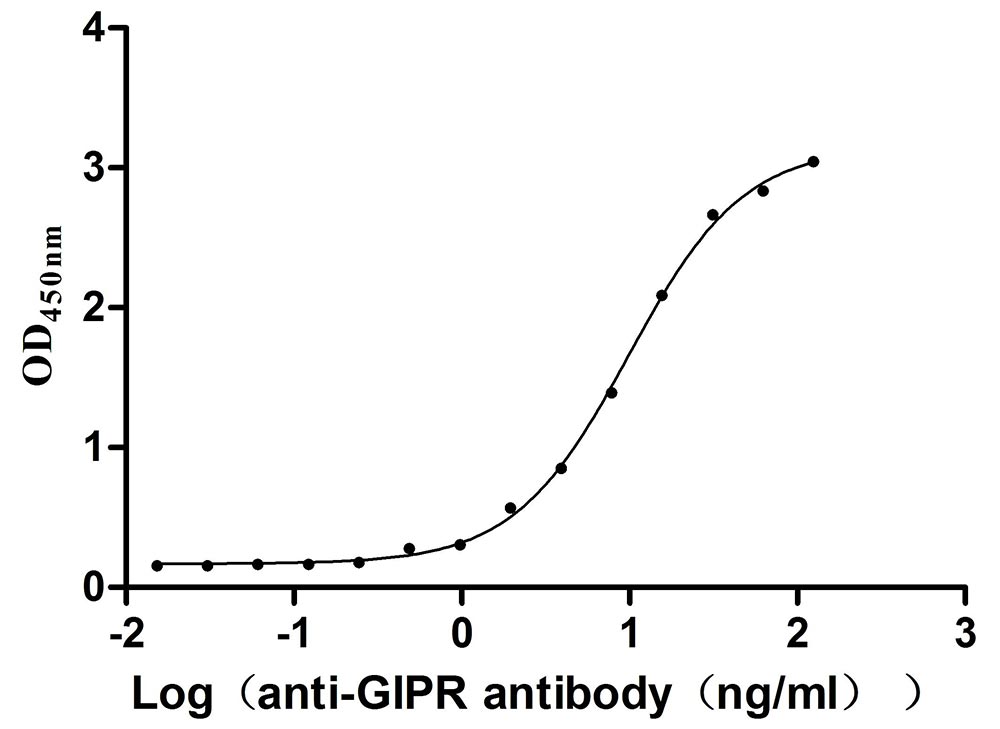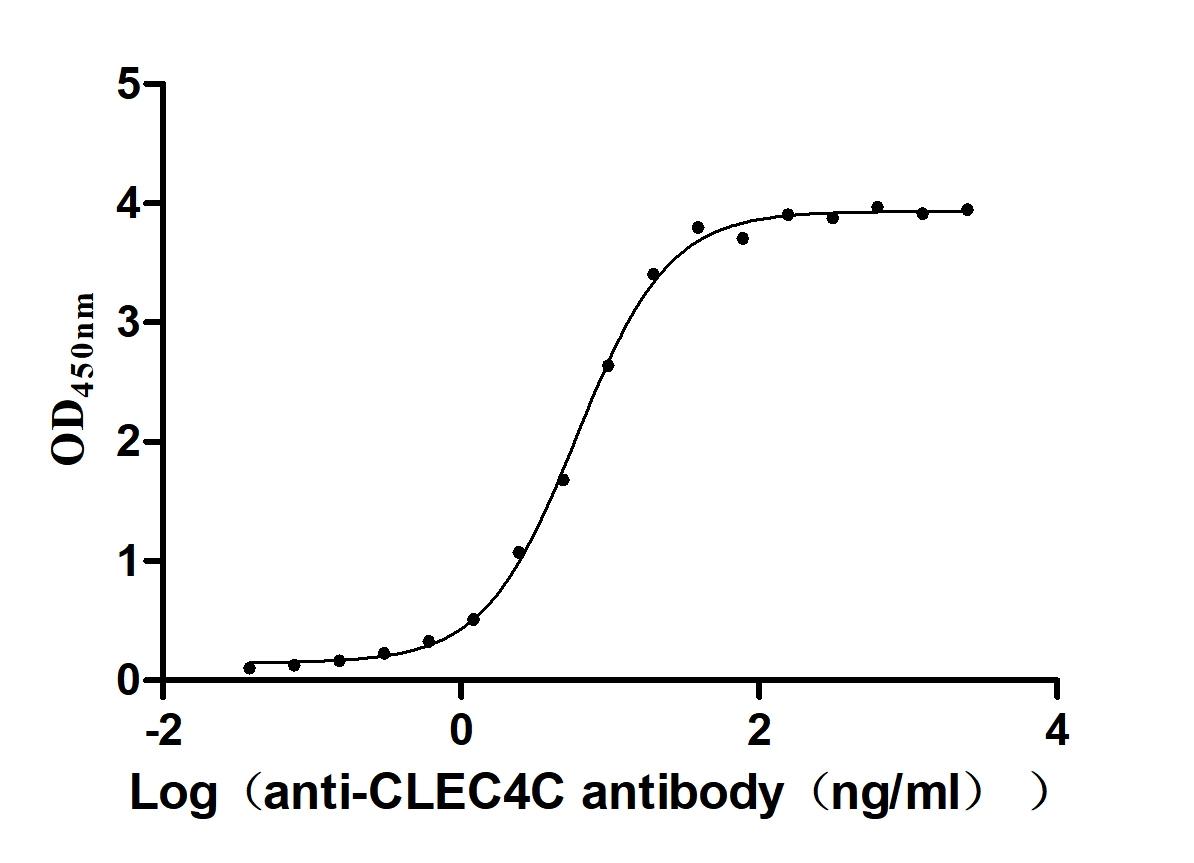Recombinant Human Beta-microseminoprotein (MSMB)
-
货号:CSB-YP015046HU
-
规格:
-
来源:Yeast
-
其他:
-
货号:CSB-EP015046HU
-
规格:
-
来源:E.coli
-
其他:
-
货号:CSB-EP015046HU-B
-
规格:
-
来源:E.coli
-
共轭:Avi-tag Biotinylated
E. coli biotin ligase (BirA) is highly specific in covalently attaching biotin to the 15 amino acid AviTag peptide. This recombinant protein was biotinylated in vivo by AviTag-BirA technology, which method is BriA catalyzes amide linkage between the biotin and the specific lysine of the AviTag.
-
其他:
-
货号:CSB-BP015046HU
-
规格:
-
来源:Baculovirus
-
其他:
-
货号:CSB-MP015046HU
-
规格:
-
来源:Mammalian cell
-
其他:
产品详情
-
纯度:>85% (SDS-PAGE)
-
基因名:MSMB
-
Uniprot No.:
-
别名:Beta microseminoprotein [Precursor] ; Beta-microseminoprotein; HPC 13; HPC13; IGBF; Immunoglobulin binding factor; Immunoglobulin-binding factor; microseminoprotein beta; Msmb; MSMB_HUMAN; MSP; MSPB; PN 44; PN44; Prostate secreted seminal plasma protein; Prostate secretory protein of 94 amino acids; Prostate secretory protein PSP94; PRPS; PRSP; PSP 57; PSP; PSP-94; PSP57; PSP94; Seminal plasma beta inhibin ; Seminal plasma beta-inhibin
-
种属:Homo sapiens (Human)
-
蛋白长度:Full length protein
-
表达区域:21-114
-
氨基酸序列SCYFIPNEGV PGDSTRKCMD LKGNKHPINS EWQTDNCETC TCYETEISCC TLVSTPVGYD KDNCQRIFKK EDCKYIVVEK KDPKKTCSVS EWII
-
蛋白标签:Tag type will be determined during the manufacturing process.
The tag type will be determined during production process. If you have specified tag type, please tell us and we will develop the specified tag preferentially. -
产品提供形式:Lyophilized powder
Note: We will preferentially ship the format that we have in stock, however, if you have any special requirement for the format, please remark your requirement when placing the order, we will prepare according to your demand. -
复溶:We recommend that this vial be briefly centrifuged prior to opening to bring the contents to the bottom. Please reconstitute protein in deionized sterile water to a concentration of 0.1-1.0 mg/mL.We recommend to add 5-50% of glycerol (final concentration) and aliquot for long-term storage at -20℃/-80℃. Our default final concentration of glycerol is 50%. Customers could use it as reference.
-
储存条件:Store at -20°C/-80°C upon receipt, aliquoting is necessary for mutiple use. Avoid repeated freeze-thaw cycles.
-
保质期:The shelf life is related to many factors, storage state, buffer ingredients, storage temperature and the stability of the protein itself.
Generally, the shelf life of liquid form is 6 months at -20°C/-80°C. The shelf life of lyophilized form is 12 months at -20°C/-80°C. -
货期:Delivery time may differ from different purchasing way or location, please kindly consult your local distributors for specific delivery time.Note: All of our proteins are default shipped with normal blue ice packs, if you request to ship with dry ice, please communicate with us in advance and extra fees will be charged.
-
注意事项:Repeated freezing and thawing is not recommended. Store working aliquots at 4°C for up to one week.
-
Datasheet :Please contact us to get it.
相关产品
靶点详情
-
基因功能参考文献:
- Studies indicate prostate secretory protein of 94 amino acids (PSP94) as a prostate tumor marker [Review]. PMID: 28930560
- this meta-analysis indicates that MSMB gene rs10993994 polymorphism increases the risk of PC. PMID: 28212531
- PSP94 levels differed among idiopathic pulmonary fibrosis, pulmonary sarcoidosis and chronic pulmonary obstructive disease. PMID: 27758987
- Results identified CRISP2 as a potential binding protein of PSP94 from human sperm. PMID: 27161017
- decreased expression of MSMB parallels the clinical progression of PC and adjusted serum MSMB levels are associated with PC risk PMID: 26939004
- Based on nasopharyngeal MSP gene expression in readily available Nasopharyngeal aspirate samples , we can discriminate between severity of disease in Respiratory syncytial virus infected infants. PMID: 25261323
- PSP94 regulate the Lin28/Let-7 loop in ovarian cancer cells. PMID: 25188517
- Data indicate that prostate secretory protein PSP94 is decreased in an ovarian cancer drug-resistant cell line, and plays an important role in the development of drug resistance in vitro. PMID: 24186202
- The rs10993994 genotype in the MSMB gene modifies the association between number of sexual partners and prostate cancer risk. PMID: 24037734
- Beta-microseminoprotein in urine was statistically lower in prostate cancer patients. PMID: 24115268
- Han Chinese men carrying the MSMB variant have an increased risk of spermatogenic failure associated with male infertility. PMID: 23608167
- Data indicate that the increase in prostate cancer (PC) risk associated with rs10993994:C>T is likely mediated by the variant's effect of MSMB-encoded protein PSP94 expression; however, this effect does not extend to NCOA4 in the data. PMID: 22887727
- Involvement of the hinge region of CRISPs in interaction with PSP94 may affect the domain movement of CRISPs essential for the ion-channel regulatory activity resulting in inhibition of this activity. PMID: 23375721
- MSMB and CRISP3 were widely distributed in ovaries and in ovarian tumors; the expression of MSMB fits well with a tumor-suppressor function in ovarian carcinogenesis. PMID: 22993349
- Computational network analysis reveals that the MSMB gene is functionally connected to NCOA4 and the androgen receptor signaling pathway. The data provide an example of how GWAS-associated variants may have multiple genetic and epigenetic effects PMID: 22661295
- These data identify beta-microseminoprotein as an important innate immune factor active against C. albicans and may help explain the low sexual transmission rate of Candida. PMID: 22496651
- MSMB is a strong independent factor, predicting favorable outcome after radical prostatectomy for localized prostate cancer. PMID: 21240253
- provide the first link between a low penetrance polymorphism for prostate cancer and a potential test in human tissue and bodily fluids PMID: 20967219
- Suppression of MSMB expression or NCOA4 overexpression promotes anchorage-independent growth of prostate epithelial cells. PMID: 21085629
- s examines the association between rs10993994 genotype and MSP levels in a sample of 500 prostate cancer-free men from four racial/ethnic populations in the Multiethnic Cohort (European Americans, African Americans, Latinos, and Japanese Americans). PMID: 20736317
- MSMB expression is influenced by androgens, but also by genotype and epigenetic silencing. PMID: 20680031
- Either PSP94 or CRISP-3 alone can induce growth inhibition in prostate cancer cells in a cell line specific manner. PMID: 20676114
- High MSMB expression is associated with the development of prostate cancer. PMID: 20569440
- SNPs at MSMB correlate with physiologic variation in beta-MSP and PSA levels in the blood and semen of healthy young Swedish men. In particular, rs10993994 has a strong effect on beta-MSP levels. PMID: 20696662
- A single-nucleotide polymorphism in the MSMB promoter contributes to the genetic predisposition to prostate cancer in the southern Chinese Han population. PMID: 20333697
- Crystal structure shows that these edges from two PSP94 monomers associate in antiparallel fashion, leading to formation of a dimer. PMID: 20184897
- We conclude that MSMB is unlikely to be a familial prostate cancer gene.The high-risk alleles may effect prostate cancer risk by modifying MSMB gene expression in response to hormones in a tissue-specific manner. PMID: 19997100
- Ab initio structure of human seminal plasma prostatic inhibin gives significant insight into its biological functions. PMID: 12032598
- a new blood protein (PSPBP) is identified that binds PSP94 PMID: 15344909
- NMR solution structure PMID: 16930619
- Bound/free PSP94 is a novel and independent prognostic markers following radical prostatectomy for prostate cancer. PMID: 17062675
- Our data disclose a hitherto unexplored link between the putative oncogene EZH2 and the tumor suppressor PSP94, and show that MSMB is silenced by EZH2 in advanced prostate cancer cells. PMID: 17237810
- both native PSP94 as well as modified protein have the ability to bind human IgG, suggesting the involvement of sequential epitopes of PSP94 in IgG binding PMID: 17493883
- Predictor of recurrence after radical prostatectomy for localized prostate cancer. PMID: 17634540
- MSP in serum can be used as a marker of prostate secretion, despite the contribution from extra prostatic tissues. PMID: 18222915
- A tentative structure for the hMSP-CRISP-3 complex using the known crystal structure of triflin as a model of CRISP-3 was presented. PMID: 19026612
- alternative splicing variants, M-RIP, HYAL2, CDCA1, and MSMB genes showed differential expressions between cancer cells and corresponding normal tissues. PMID: 19081476
- The observations that rs10993994 is the strongest associated variant in the region and its risk allele has a major effect on the transcriptional activity of MSMB suggest the T allele as a causal variant that confers increased risk of prostate cancer. PMID: 19153072
- PSP94 has been purified from human seminal plasma and crystallized. PMID: 19342788
- a common variant in MSMB on chromosome 10q11.2 is associated with prostate cancer susceptibility PMID: 19383797
- beta-Microseminoprotein was purified using anion-exchange and size-exclusion chromatography and the purified protein was crystallized using 0.1 M ammonium sulfate, 0.1 M HEPES buffer pH 7.0 and 20%(w/v) PEG 3350 PMID: 19407392
- For the two SNPs that had significant differences between more and less aggressive disease, KLK3 and MSMB, the alleles that are associated with increased risk for prostate cancer were more frequent in patients with less aggressive disease. PMID: 19434657
显示更多
收起更多
-
相关疾病:Prostate cancer, hereditary, 13 (HPC13)
-
亚细胞定位:Secreted. Note=Sperm surface.
-
蛋白家族:Beta-microseminoprotein family
-
组织特异性:Strongly expressed in prostate, liver, kidney, breast and penis. Also expressed in pancreas, esophagus, stomach, deodenum, colon, trachea, lung, salivary glands and fallopian tube. PSP94 is expressed in lung and breast, whereas PSP57 is found in kidney an
-
数据库链接:
HGNC: 7372
OMIM: 157145
KEGG: hsa:4477
STRING: 9606.ENSP00000351363
UniGene: Hs.255462
Most popular with customers
-
Recombinant Human Signal transducer CD24 (CD24)-Nanoparticle (Active)
Express system: Mammalian cell
Species: Homo sapiens (Human)
-
Express system: Mammalian cell
Species: Macaca fascicularis (Crab-eating macaque) (Cynomolgus monkey)
-
Recombinant Macaca fascicularis CD44 antigen (CD44), partial (Active)
Express system: Mammalian cell
Species: Macaca fascicularis (Crab-eating macaque) (Cynomolgus monkey)
-
Recombinant Human V-set and immunoglobulin domain-containing protein 4 (VSIG4), partial (Active)
Express system: Mammalian cell
Species: Homo sapiens (Human)
-
Recombinant Human Desmoglein-3 (DSG3), partial (Active)
Express system: Baculovirus
Species: Homo sapiens (Human)
-
Recombinant Mouse Gastric inhibitory polypeptide receptor (Gipr), partial (Active)
Express system: Mammalian cell
Species: Mus musculus (Mouse)
-
Recombinant Human Cytotoxic and regulatory T-cell molecule (CRTAM), partial (Active)
Express system: Mammalian cell
Species: Homo sapiens (Human)
-
Recombinant Macaca fascicularis C-type lectin domain family 4 member C(CLEC4C), partial (Active)
Express system: Mammalian cell
Species: Macaca fascicularis (Crab-eating macaque) (Cynomolgus monkey)


